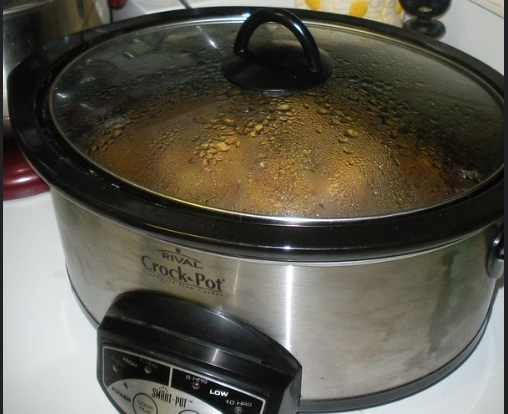To say that the global COVID-19 pandemic wreaked havoc worldwide would be an understatement. Even, the world’s largest and most powerful economy, the United States, suffered a significant impact from the shutdown related to the disease. The impact is being felt across all sectors, especially housing — an industry that was booming just months prior.
As fans of HGTV’s “House Hunter’s International” know, house hunting is no longer limited to one’s own country, today people often buy second homes in countries other than their own. One factor rarely discussed on TV shows, however, is the impact of different currencies on the cross-border buying process. If you earn money in one country and buy in a different country, the currency exchange rate can have a big impact on the cost that you pay.
For instance, if you see that the housing prices in another country have fallen 30% in the local currency, but that currency has appreciated 30% against your currency, the price in your currency might be roughly the same. For more information, you can read this Forex FAQ to understand some of the risks involved in transactions with a different currency than your own.
A Buyer’s Market
Foreign property buyers looking to score a good deal in the U.S. real estate market have one important factor working in their favor: supply and demand dynamics. Glenn Kelman, the CEO of real estate company Redfin said in an interview the secondary real estate and vacation markets are “toast” as many owners who list their properties on Airbnb and other vacation sites are “looking for immediate liquidity.”
Meanwhile, existing-home sales hit a 13-year high in February but just one month later home sales were down 8.5%. The trend accelerated with U.S. home sales showing the biggest decline in nearly 10 years in April.
In other words, many markets in the U.S. are currently buyers’ markets. Cash is king, and foreigners with cash to spend will be given the royal treatment.
U.S. Dollar Rising So Far In 2020
Buying property in the U.S. from outside the country is no easy task as it involves foreign exchange risk. The appeal of a great deal on a property today could vanish within days or weeks if the U.S. dollar appreciates in value. This can be a special problem if you need to take out a mortgage with payments over a long period of time. The longer the mortgage the more opportunity for the exchange rate to go against you.
For some, fluctuations in foreign exchange value would be overlooked if they are buying a dream property or vacation home on a picturesque beach in Miami or Los Angeles. But for others looking to buy real estate as an investment tool, a 5% to 10% appreciation in the dollar could be the difference between a profit or a loss.
The U.S. dollar is around 7.6% higher versus the Canadian dollar since the start of 2020 and 8.7% higher against the British pound. Anyone from America’s neighbor to the north or across the pond who were interested in a U.S. property at the start of the year now needs to pay around 8% more — assuming the price tag on the home is the same.
Hedging Exchange Rates
One way to limit your risk on currency exchange fluctuations is to buy an “off-setting pair”. Multiple online money transfer platforms allow motivated home buyers to buy a currency pair for a future date at a predetermined exchange rate. This gives foreigners the opportunity to minimize exchange rate risks associated with expensive transactions.
A forward contract has a time duration of one-year for all major currency pairs but longer durations are available for important global pairs, like the GBP/USD or EUR/USD.
U.S. Dollar Strength To Continue
The case for continued strength in the U.S. dollar is in part based on the fact that the American economy will remain the undisputed global leader. Granted, the country will emerge from the COVID-19 pandemic in worse shape, but so will the rest of the world.
Despite the COVID-19 death toll, global investors will still look at the U.S. dollar as a safe haven. This makes sense as European leaders will need to deal with Brexit-related uncertainties moving forward while the Canadian and Australian currencies are correlated to troubled commodities.
And then there is the elephant in the room few like to talk about. U.S. President Donald Trump personally advocates for a stronger U.S. dollar. Granted, he has little authority in dictating central bank policies, the President is at the end of the day the most powerful person in the world.
Would anyone like to bet against this reality and think the greenback is poised to fall in value?
Bottom Line: Some Impact On Real Estate Deals
Currency exchange fluctuations and a strengthening U.S. dollar will certainly have some impact on foreign property buyers. The impact will certainly be felt at the lower end of the spectrum and likely at the middle-end as well.
The ultra-luxury and high-end market exclusive to the world’s elite will remain unchanged and for good reason. Anyone with enough cash to spend $50 million on a New York City penthouse overlooking Central Park will consider an extra 5% to 10% cost as merely the price of doing business.
It might take many years before the full impact on the real estate market from the COVID-19 pandemic and currency fluctuations can be quantified.
You might also like:
- Which is Better: New Construction or a Pre-Owned Home?
- 5 Potential Maintenance Headaches for Older Homes
- Tips for First Time Buyers: Taking your First Steps on the U.K. Property Market
- Key Factors in Getting a Mortgage





